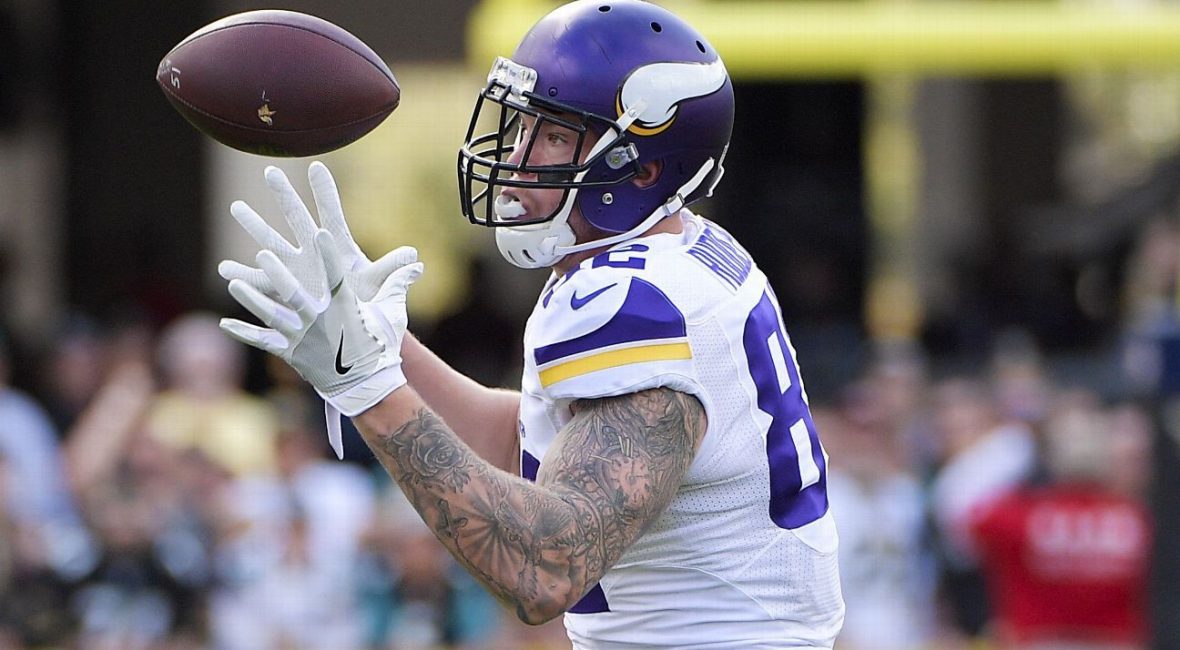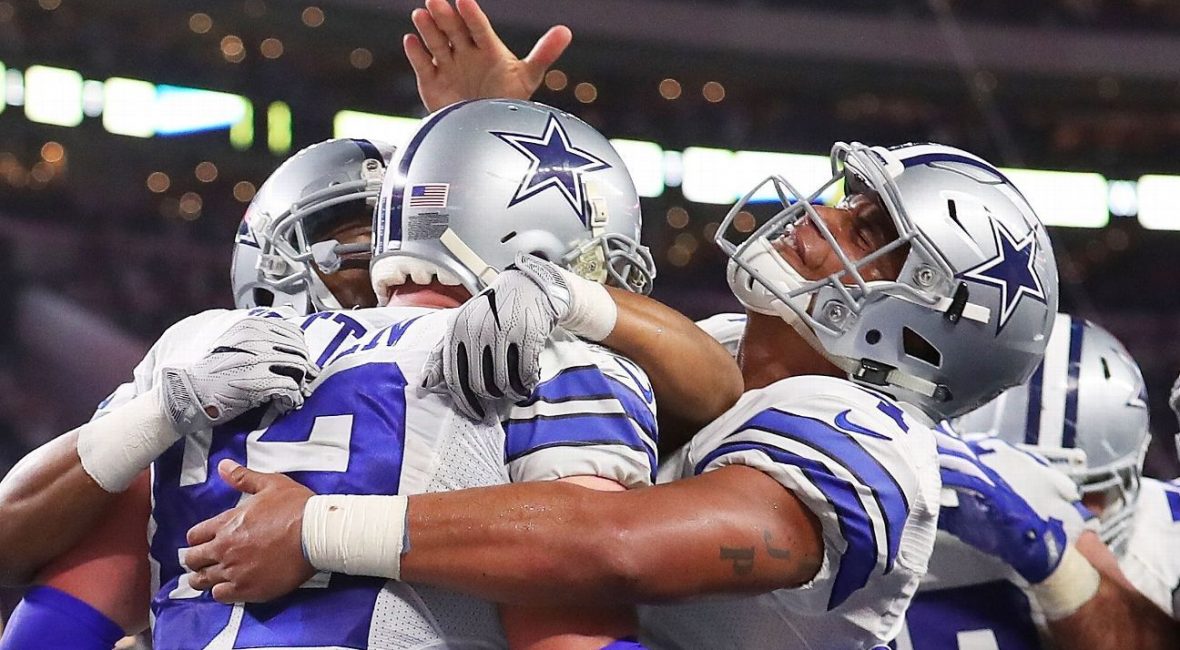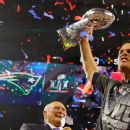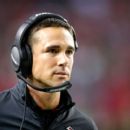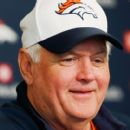MINNEAPOLIS — The children Kyle Rudolph sees hooked up to medical devices at the University of Minnesota Masonic Children’s Hospital — or the parents there with them, trying to force smiles through their kaleidoscopes of emotion — could have just as easily been in his own family.
When the Minnesota Vikings tight end was 15 months old, his younger brother Casey was born with neuroblastoma, an aggressive form of cancer that forms in nerve cells and attacks infants. Casey Rudolph went straight from the hospital where he was born to Cincinnati Children’s Hospital, where he spent the first year of his life undergoing chemotherapy; he had a kidney and adrenal gland removed before beating the disease.
The family returned to the hospital throughout Kyle Rudolph’s childhood; only those times, it was to say thank-you by volunteering. Rudolph’s years at Notre Dame were dotted with trips to children’s hospitals in South Bend, and since 2011, when the Vikings drafted him, Rudolph has been a regular presence as part of the team’s four-decade partnership with the Masonic Children’s Hospital.
Now Rudolph is putting his own imprint on that partnership. He and his wife Jordan announced Tuesday that fundraising has been completed for Kyle Rudolph’s End Zone — a 2,500-square-foot space at the hospital where children and teenagers can play, relax and engage in healing therapies. The goal is to have the space open by the start of the 2017 football season.
“From [the point my brother was born], my mom and dad, myself, countless family members were always in and out of the hospital — me being the 15-month-old big brother, constantly in the way, tripping on his IV cords, medicine lines, just a disaster at all times in the hospital, from what I’ve been told,” Rudolph said Tuesday. “We wanted to come up with an idea: Where’s a place where, not only these patients when healthy enough to get out of their rooms, but where can their families go, where can brothers and sisters go, where can friends and family go?
“Through the course of a five-, 10-, 15-month stay in the hospital, the hours and days and months go by. At times, these people don’t leave their rooms — not because they’re not healthy enough. There’s just nothing else for them to do. You can only play with video games for so long. You can only sit and do puzzles and color coloring books [for so long]. At some point, these kids want to be real kids. We wanted to provide a space for them where, no matter what their situation or circumstance is, they can come down here and be kids.”
Designs for the space, which will redevelop an underutilized corner of the hospital, call for a 7- or 8-foot basketball hoop, a sports simulator with a drop-down screen, a media hub, a kitchen and lounge area, an air hockey table, and a seating area for quiet activities. Rudolph and the project’s architects asked for the input of patients such Casey O’Brien, the former quarterback at Cretin-Derham Hall High School (St. Paul, Minnesota) who spent more than 160 nights in the hospital during two bouts with bone cancer before he was cleared to return to his team and hold for extra points last season.
“We spent a little time with him last summer, because it was important to us to get their perspective,” Rudolph said. “We may have all these great ideas about what we want to put in a space and that we think are cool, but if the kids don’t want it and the kids don’t use it, it’s not cool. The worst thing we can do is put a space down here that looks incredible from the street, but there’s never any kids in it. That’s the whole point of building the space: kids can come down here and they don’t want to go back to their rooms. They’re kind of forced to go back to their rooms. We hope it gets a lot of use.”
Rudolph said he will continue to raise funds to finance the operation of the space over the coming years to make sure it stays current and relevant to what future patients want. As he and his wife raise their 4-month-old twin girls, Rudolph is already thinking ahead to the days when they’ll be old enough to visit — and of the families they might meet there who are just looking for a slice of normalcy.
“When my kids come back and spend time down there, and visit patients and families, [we want to make sure] this space looks just as good as when we opened it up,” Rudolph said.



